Jennie Baxter, Journalist - Robert Barr (novels in english .TXT) 📗
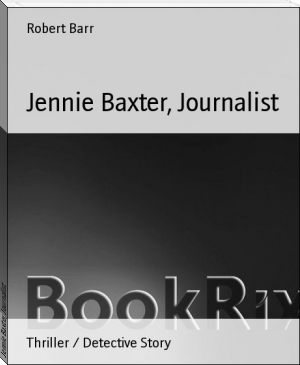
- Author: Robert Barr
Book online «Jennie Baxter, Journalist - Robert Barr (novels in english .TXT) 📗». Author Robert Barr
simple thing it is."
Jennie, interested in so rude a man, smiled, drew up the least decrepit bench she could find, and sat down, in spite of the angry mutterings of her irritated host. Then she opened her satchel, took out the small bottle of gold, and handed it to him without a word. The old man received it somewhat contemptuously, shook it backward and forward without extracting the cork, adjusted his glasses, then suddenly seemed to take a nervous interest in the material presented to him. He rose and went nearer the light. Drawing out the cork with trembling hands, he poured some of the contents into his open palm. The result was startling enough. The old man flung up his hands, letting the vial crash into a thousand pieces on the floor. He staggered forward, shrieking, "Ah, mein Gott--mein Gott!"
Then, to the consternation of Jennie, who had already risen in terror from her chair, the scientist plunged forward on his face. The girl had difficulty in repressing a shriek. She looked round hurriedly for a bell to ring, but apparently there was none. She tried to open the door and cry for help, but in her excitement could neither find handle nor latch. It seemed to be locked, and the key, doubtless, was in the Professor's pocket. She thought at first that he had dropped dead, but the continued moaning as he lay on the floor convinced her of her error. She bent over him anxiously and cried, "What can I do to help you?"
With a struggle he muttered, "The bottle, the bottle, in the cupboard behind you."
She hurriedly flung open the doors of the cupboard indicated, and found a bottle of brandy, and a glass, which she partly filled. The old man had with an effort struggled into a sitting posture, and she held the glass of fiery liquid to his pallid lips. He gulped down the brandy, and gasped, "I feel better now. Help me to my chair."
Assisting him to his feet, she supported him to his arm-chair, when he shook himself free, crying angrily, "Let me alone! Don't you see I am all right again?"
The girl stood aside, and the Professor dropped into his chair, his nervous hands vibrating on his knees. For a long interval nothing was said by either, and the girl at last seated herself on the bench she had formerly occupied. The next words the old man spoke were, "Who sent you here?"
"No one, I came of my own accord. I wished to meet someone who had a large knowledge of explosives, and Herr Feltz, the chemist, gave me your address."
"Herr Feltz! Herr Feltz!" he repeated. "So he sent you here?"
"No one sent me here," insisted the girl. "It is as I tell you. Herr Feltz merely gave me your address."
"Where did you get that powdered gold?"
"It came from the _debris_ of an explosion."
"I know, you said that before. Where was the explosion? Who caused it?"
"That I don't know."
"Don't you know where the explosion was?"
"Yes, I know where the explosion was, but I don't know who caused it."
"Who sent you here?"
"I tell you no one sent me here."
"That is not true, the man who caused the explosion sent you here. You are his minion. What do you expect to find out from me?"
"I expect to learn what explosive was used to produce the result that seemed to have such a remarkable effect on you."
"Why do you say that? It had no effect on me. My heart is weak. I am subject to such attacks, and I ward them off with brandy. Some day they will kill me. Then you won't learn any secrets from a dead man, will you?"
"I hope, Professor Seigfried, that you have many years yet to live, and I must further add that I did not expect such a reception as I have received from a man of science, as I was told you were. If you have no information to give to me, very well, that ends it; all you have to do is to say so."
"Who sent you here?"
"No one, as I have repeated once or twice. If anyone had, I would give him my opinion of the errand when I got back. You refuse, then, to tell me anything about the explosive that powdered the gold?"
"Refuse? Of course I refuse! What did you expect? I suppose the man who sent you here thought, because you were an engaging young woman and I an old dotard, I would gabble to you the results of a life's work. Oh, no, no, no; but I am not an old dotard. I have many years to live yet."
"I hope so. Well, I must bid you good morning. I shall go to someone else."
The old man showed his teeth in a forbidding grin.
"It is useless. Your bottle is broken, and the material it contained is dissipated. Not a trace of it is left."
He waved his thin, emaciated hand in the air as he spoke.
"Oh, that doesn't matter in the least," said Jennie. "I have several other bottles here in my satchel."
The Professor placed his hands on the arms of his chair, and slowly raised himself to his feet.
"You have others," he cried, "other bottles? Let me see them--let me see them!"
"No," replied Jennie, "I won't."
With a speed which, after his recent collapse, Jennie had not expected, the Professor ambled round to the door and placed his back against it. The glasses over his eyes seemed to sparkle as if with fire. His talon-like fingers crooked rigidly. He breathed rapidly, and was evidently labouring under intense excitement.
"Who knows you came up to see me?" he whispered hoarsely, glaring at her.
Jennie, having arisen, stood there, smoothing down her perfectly fitting glove, and answered with a calmness she was far from feeling,--
"Who knows I am here? No one but the Director of Police."
"Oh, the Director of Police!" echoed the Professor, quite palpably abashed by the unexpected answer. The rigidity of his attitude relaxed, and he became once more the old man he had appeared as he sat in a heap in his chair. "You will excuse me," he muttered, edging round towards the chair again; "I was excited."
"I noticed that you were, Professor. But before you sit down again, please unlock that door."
"Why?" he asked, pausing on his way to the chair.
"Because I wish it open."
"And I," he said in a higher tone, "wish it to remain locked until we have come to some understanding. I can't let you go out now; but I shall permit you to go unmolested as soon as you have made some explanation to me."
"If you do not unlock the door immediately I shall take this machine and fling it through the front window out on the street. The crashing glass on the pavement will soon bring someone to my rescue, Professor, and, as I have a voice of my own and small hesitation about shouting, I shall have little difficulty in directing the strangers where to come."
As Jennie spoke she moved swiftly towards the table on which stood the strange aggregation of reflectors and bent glass tubing.
"No, no, no!" screamed the Professor, springing between her and the table. "Touch anything but that--anything but that. Do not disturb it an inch--there is danger--death not only to you and me, but perhaps to the whole city. Keep away from it!"
"Very well, then," said Jennie, stepping back in spite of her endeavour to maintain her self-control; "open the door. Open both doors and leave them so. After that, if you remain seated in your chair, I shall not touch the machine, nor shall I leave until I make the explanations you require, and you have answered some questions that I shall ask. But I must have a clear way to the stair, in case you should become excited again."
"I'll unlock the doors; I'll unlock both doors," replied the old man tremulously, fumbling about in his pockets for his keys. "But keep away from that machine, unless you want to bring swift destruction on us all."
With an eagerness that retarded his speed, the Professor, constantly looking over his shoulder at his visitor, unlocked the first door, then hastily he flung open the second, and tottered back to his chair, where he collapsed on the tiger skin, trembling and exhausted.
"We may be overheard," he whined. "One can never tell who may sneak quietly up the stair. I am surrounded by spies trying to find out what I am doing."
"Wait a moment," said Jennie.
She went quickly to the outer door, found that it closed with a spring latch, opened and shut it two or three times until she was perfectly familiar with its workings, then she closed it, drew the inner door nearly shut, and sat down.
"There," she said, "we are quite safe from interruption, Professor Seigfried; but I must request you not to move from your chair."
"I have no intention of doing so," murmured the old man. "Who sent you? You said you would tell me. I think you owe me an explanation."
"I think you owe me one," replied the girl. "As I told you before, no one sent me. I came here entirely of my own accord, and I shall endeavour to make clear to you exactly why I came. Some time ago there occurred in this city a terrific explosion--"
"Where? When?" exclaimed the old man, placing his hands on the arms of his chair, as if he would rise to his feet.
"Sit where you are," commanded Jennie firmly, "and I shall tell you all I can about it. The Government, for reasons of its own, desires to keep the fact of this explosion a secret, and thus very few people outside of official circles know anything about it. I am trying to discover the cause of that disaster."
"Are you--are you working on behalf of the Government?" asked the old man eagerly, a tremor of fear in his quavering voice.
"No. I am conducting my investigations quite independently of the Government."
"But why? But why? That is what I don't understand."
"I would very much rather not answer that question."
"But that question--everything is involved in that question. I must know why you are here. If you are not in the employ of the Government, in whose employ are you?"
"If I tell you," said Jennie with some hesitation, "will you keep what I say a secret?"
"Yes, yes, yes!" cried the scientist impatiently.
"Well, I am in the service of a London daily newspaper."
"I see, I see; and they have sent you here to publish broadcast over the world all you can find out of my doings. I knew you were a spy the moment I saw you. I should never have let you in."
"My dear sir, the London paper is not even aware of your existence. They have not sent me to you at all. They have sent me to learn, if possible, the cause of the explosion I spoke of. I took some of the _debris_ to Herr Feltz to analyze it, and he said he had never seen gold, iron, feldspar, and all that, reduced to such fine, impalpable grains as was the case with the sample I left with him. I then asked him
Jennie, interested in so rude a man, smiled, drew up the least decrepit bench she could find, and sat down, in spite of the angry mutterings of her irritated host. Then she opened her satchel, took out the small bottle of gold, and handed it to him without a word. The old man received it somewhat contemptuously, shook it backward and forward without extracting the cork, adjusted his glasses, then suddenly seemed to take a nervous interest in the material presented to him. He rose and went nearer the light. Drawing out the cork with trembling hands, he poured some of the contents into his open palm. The result was startling enough. The old man flung up his hands, letting the vial crash into a thousand pieces on the floor. He staggered forward, shrieking, "Ah, mein Gott--mein Gott!"
Then, to the consternation of Jennie, who had already risen in terror from her chair, the scientist plunged forward on his face. The girl had difficulty in repressing a shriek. She looked round hurriedly for a bell to ring, but apparently there was none. She tried to open the door and cry for help, but in her excitement could neither find handle nor latch. It seemed to be locked, and the key, doubtless, was in the Professor's pocket. She thought at first that he had dropped dead, but the continued moaning as he lay on the floor convinced her of her error. She bent over him anxiously and cried, "What can I do to help you?"
With a struggle he muttered, "The bottle, the bottle, in the cupboard behind you."
She hurriedly flung open the doors of the cupboard indicated, and found a bottle of brandy, and a glass, which she partly filled. The old man had with an effort struggled into a sitting posture, and she held the glass of fiery liquid to his pallid lips. He gulped down the brandy, and gasped, "I feel better now. Help me to my chair."
Assisting him to his feet, she supported him to his arm-chair, when he shook himself free, crying angrily, "Let me alone! Don't you see I am all right again?"
The girl stood aside, and the Professor dropped into his chair, his nervous hands vibrating on his knees. For a long interval nothing was said by either, and the girl at last seated herself on the bench she had formerly occupied. The next words the old man spoke were, "Who sent you here?"
"No one, I came of my own accord. I wished to meet someone who had a large knowledge of explosives, and Herr Feltz, the chemist, gave me your address."
"Herr Feltz! Herr Feltz!" he repeated. "So he sent you here?"
"No one sent me here," insisted the girl. "It is as I tell you. Herr Feltz merely gave me your address."
"Where did you get that powdered gold?"
"It came from the _debris_ of an explosion."
"I know, you said that before. Where was the explosion? Who caused it?"
"That I don't know."
"Don't you know where the explosion was?"
"Yes, I know where the explosion was, but I don't know who caused it."
"Who sent you here?"
"I tell you no one sent me here."
"That is not true, the man who caused the explosion sent you here. You are his minion. What do you expect to find out from me?"
"I expect to learn what explosive was used to produce the result that seemed to have such a remarkable effect on you."
"Why do you say that? It had no effect on me. My heart is weak. I am subject to such attacks, and I ward them off with brandy. Some day they will kill me. Then you won't learn any secrets from a dead man, will you?"
"I hope, Professor Seigfried, that you have many years yet to live, and I must further add that I did not expect such a reception as I have received from a man of science, as I was told you were. If you have no information to give to me, very well, that ends it; all you have to do is to say so."
"Who sent you here?"
"No one, as I have repeated once or twice. If anyone had, I would give him my opinion of the errand when I got back. You refuse, then, to tell me anything about the explosive that powdered the gold?"
"Refuse? Of course I refuse! What did you expect? I suppose the man who sent you here thought, because you were an engaging young woman and I an old dotard, I would gabble to you the results of a life's work. Oh, no, no, no; but I am not an old dotard. I have many years to live yet."
"I hope so. Well, I must bid you good morning. I shall go to someone else."
The old man showed his teeth in a forbidding grin.
"It is useless. Your bottle is broken, and the material it contained is dissipated. Not a trace of it is left."
He waved his thin, emaciated hand in the air as he spoke.
"Oh, that doesn't matter in the least," said Jennie. "I have several other bottles here in my satchel."
The Professor placed his hands on the arms of his chair, and slowly raised himself to his feet.
"You have others," he cried, "other bottles? Let me see them--let me see them!"
"No," replied Jennie, "I won't."
With a speed which, after his recent collapse, Jennie had not expected, the Professor ambled round to the door and placed his back against it. The glasses over his eyes seemed to sparkle as if with fire. His talon-like fingers crooked rigidly. He breathed rapidly, and was evidently labouring under intense excitement.
"Who knows you came up to see me?" he whispered hoarsely, glaring at her.
Jennie, having arisen, stood there, smoothing down her perfectly fitting glove, and answered with a calmness she was far from feeling,--
"Who knows I am here? No one but the Director of Police."
"Oh, the Director of Police!" echoed the Professor, quite palpably abashed by the unexpected answer. The rigidity of his attitude relaxed, and he became once more the old man he had appeared as he sat in a heap in his chair. "You will excuse me," he muttered, edging round towards the chair again; "I was excited."
"I noticed that you were, Professor. But before you sit down again, please unlock that door."
"Why?" he asked, pausing on his way to the chair.
"Because I wish it open."
"And I," he said in a higher tone, "wish it to remain locked until we have come to some understanding. I can't let you go out now; but I shall permit you to go unmolested as soon as you have made some explanation to me."
"If you do not unlock the door immediately I shall take this machine and fling it through the front window out on the street. The crashing glass on the pavement will soon bring someone to my rescue, Professor, and, as I have a voice of my own and small hesitation about shouting, I shall have little difficulty in directing the strangers where to come."
As Jennie spoke she moved swiftly towards the table on which stood the strange aggregation of reflectors and bent glass tubing.
"No, no, no!" screamed the Professor, springing between her and the table. "Touch anything but that--anything but that. Do not disturb it an inch--there is danger--death not only to you and me, but perhaps to the whole city. Keep away from it!"
"Very well, then," said Jennie, stepping back in spite of her endeavour to maintain her self-control; "open the door. Open both doors and leave them so. After that, if you remain seated in your chair, I shall not touch the machine, nor shall I leave until I make the explanations you require, and you have answered some questions that I shall ask. But I must have a clear way to the stair, in case you should become excited again."
"I'll unlock the doors; I'll unlock both doors," replied the old man tremulously, fumbling about in his pockets for his keys. "But keep away from that machine, unless you want to bring swift destruction on us all."
With an eagerness that retarded his speed, the Professor, constantly looking over his shoulder at his visitor, unlocked the first door, then hastily he flung open the second, and tottered back to his chair, where he collapsed on the tiger skin, trembling and exhausted.
"We may be overheard," he whined. "One can never tell who may sneak quietly up the stair. I am surrounded by spies trying to find out what I am doing."
"Wait a moment," said Jennie.
She went quickly to the outer door, found that it closed with a spring latch, opened and shut it two or three times until she was perfectly familiar with its workings, then she closed it, drew the inner door nearly shut, and sat down.
"There," she said, "we are quite safe from interruption, Professor Seigfried; but I must request you not to move from your chair."
"I have no intention of doing so," murmured the old man. "Who sent you? You said you would tell me. I think you owe me an explanation."
"I think you owe me one," replied the girl. "As I told you before, no one sent me. I came here entirely of my own accord, and I shall endeavour to make clear to you exactly why I came. Some time ago there occurred in this city a terrific explosion--"
"Where? When?" exclaimed the old man, placing his hands on the arms of his chair, as if he would rise to his feet.
"Sit where you are," commanded Jennie firmly, "and I shall tell you all I can about it. The Government, for reasons of its own, desires to keep the fact of this explosion a secret, and thus very few people outside of official circles know anything about it. I am trying to discover the cause of that disaster."
"Are you--are you working on behalf of the Government?" asked the old man eagerly, a tremor of fear in his quavering voice.
"No. I am conducting my investigations quite independently of the Government."
"But why? But why? That is what I don't understand."
"I would very much rather not answer that question."
"But that question--everything is involved in that question. I must know why you are here. If you are not in the employ of the Government, in whose employ are you?"
"If I tell you," said Jennie with some hesitation, "will you keep what I say a secret?"
"Yes, yes, yes!" cried the scientist impatiently.
"Well, I am in the service of a London daily newspaper."
"I see, I see; and they have sent you here to publish broadcast over the world all you can find out of my doings. I knew you were a spy the moment I saw you. I should never have let you in."
"My dear sir, the London paper is not even aware of your existence. They have not sent me to you at all. They have sent me to learn, if possible, the cause of the explosion I spoke of. I took some of the _debris_ to Herr Feltz to analyze it, and he said he had never seen gold, iron, feldspar, and all that, reduced to such fine, impalpable grains as was the case with the sample I left with him. I then asked him
Free e-book «Jennie Baxter, Journalist - Robert Barr (novels in english .TXT) 📗» - read online now
Similar e-books:

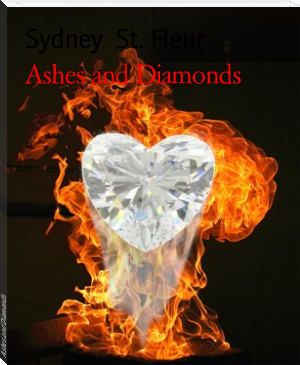
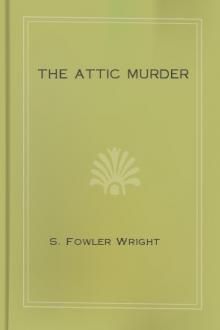
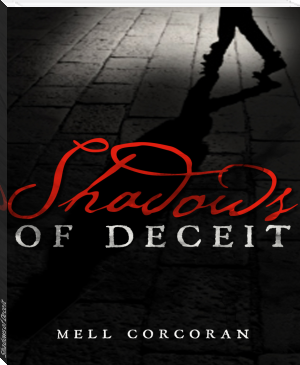
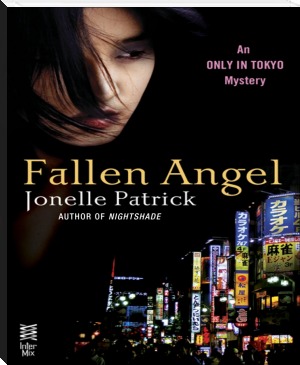
Comments (0)